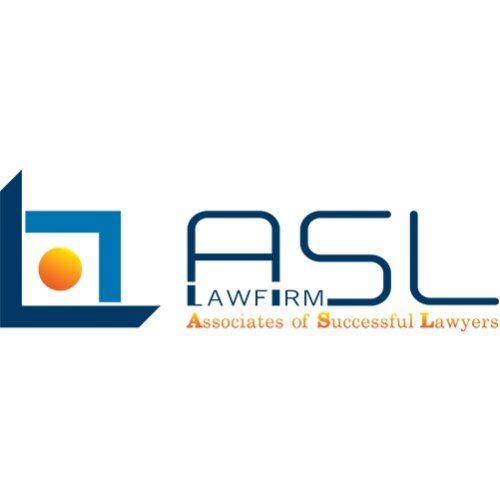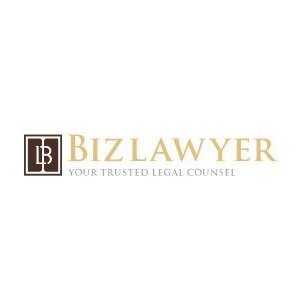Best Commercial Real Estate Lawyers in Hanoi
Share your needs with us, get contacted by law firms.
Free. Takes 2 min.
Free Guide to Hiring a Real Estate Lawyer
List of the best lawyers in Hanoi, Vietnam
About Commercial Real Estate Law in Hanoi, Vietnam
Commercial Real Estate in Hanoi, Vietnam refers to properties used for business purposes such as offices, retail spaces, industrial buildings, and warehouses. This field of law governs the rights, obligations, and transactions related to commercial properties in Hanoi. Understanding the legal aspects is crucial to protecting your interests and ensuring smooth business operations in the city.
Why You May Need a Lawyer
Engaging a lawyer specializing in Commercial Real Estate Law in Hanoi is essential in various situations:
- Buying or selling commercial properties
- Leasing or renting commercial spaces
- Negotiating contracts or agreements
- Resolving disputes with landlords, tenants, or other parties
- Understanding zoning regulations and land use restrictions
Local Laws Overview
Here are key aspects of local laws relevant to Commercial Real Estate in Hanoi:
- Land Ownership: In Vietnam, the State owns all land, and individuals or organizations can only obtain land-use rights.
- Legal Documents: Commercial real estate transactions require proper documentation, including leases, sale agreements, and land-use certificates.
- Foreign Investment: Foreign investors interested in commercial real estate must follow specific regulations, including obtaining investment licenses.
- Zoning and Planning: Understanding zoning and planning laws is critical to ensure compliance and avoid future legal issues.
- Taxes and Fees: Various taxes and fees, such as value-added tax and registration fees, apply to commercial real estate transactions and should be carefully considered.
Frequently Asked Questions
1. Can I own commercial real estate in Hanoi as a foreigner?
Foreigners cannot own land in Vietnam, but they can obtain land-use rights or purchase commercial properties with existing land-use rights through various arrangements, such as long-term leases or establishing a local company.
2. How can I ensure a smooth transaction when buying commercial real estate?
To ensure a smooth transaction, it is advisable to engage a reputable real estate lawyer who can assist you with due diligence, verifying the property's legality, drafting or reviewing contracts, and facilitating the transfer of ownership.
3. What should I consider when leasing a commercial space in Hanoi?
When leasing a commercial space, consider factors such as the lease term, rental conditions, maintenance responsibilities, renewal options, and any restrictions on alterations or subleasing. Having a lawyer review the lease agreement can help protect your interests.
4. How can I handle a dispute with my landlord or tenant?
If a dispute arises, it is advisable to first try to resolve it amicably through negotiation or mediation. If that fails, seeking legal assistance is crucial. A lawyer can assess your rights, obligations, and potential remedies under the applicable laws.
5. What permits or licenses do I need for commercial real estate development?
Commercial real estate development in Hanoi may require permits and licenses, including construction permits, environmental permits, and fire safety approvals. Consulting with a lawyer who specializes in real estate development can ensure compliance and minimize legal risks.
Additional Resources
Here are some resources that can provide further information and assistance in Commercial Real Estate Law in Hanoi, Vietnam:
- - Ministry of Construction: www.moc.gov.vn
- - Vietnam Chamber of Commerce and Industry: www.vcci.com.vn
- - Hanoi Real Estate Association: www.hanoi-realestate.vn
Next Steps
If you require legal assistance in Commercial Real Estate in Hanoi, it is recommended to:
- Research and shortlist reputable law firms.
- Contact the selected law firms to discuss your specific needs.
- Schedule consultations to evaluate their expertise, responsiveness, and fees.
- Select a lawyer who best matches your requirements and initiate the engagement process.
- Work closely with your lawyer, providing all relevant information, and following their guidance throughout the legal process.
Lawzana helps you find the best lawyers and law firms in Hanoi through a curated and pre-screened list of qualified legal professionals. Our platform offers rankings and detailed profiles of attorneys and law firms, allowing you to compare based on practice areas, including Commercial Real Estate, experience, and client feedback.
Each profile includes a description of the firm's areas of practice, client reviews, team members and partners, year of establishment, spoken languages, office locations, contact information, social media presence, and any published articles or resources. Most firms on our platform speak English and are experienced in both local and international legal matters.
Get a quote from top-rated law firms in Hanoi, Vietnam — quickly, securely, and without unnecessary hassle.
Disclaimer:
The information provided on this page is for general informational purposes only and does not constitute legal advice. While we strive to ensure the accuracy and relevance of the content, legal information may change over time, and interpretations of the law can vary. You should always consult with a qualified legal professional for advice specific to your situation.
We disclaim all liability for actions taken or not taken based on the content of this page. If you believe any information is incorrect or outdated, please contact us, and we will review and update it where appropriate.
















